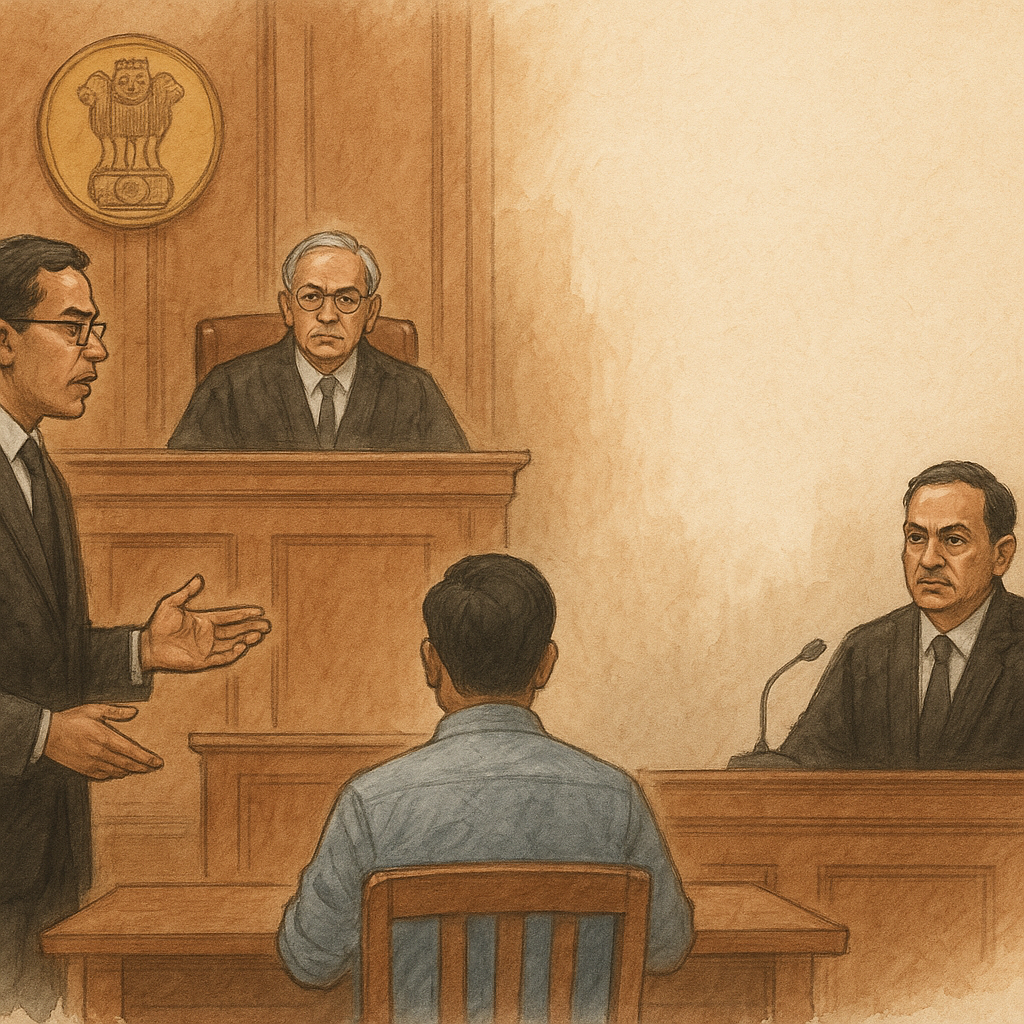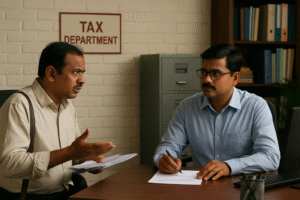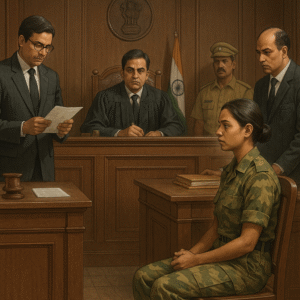Simplified Explanation of the Judgment
The Patna High Court recently intervened in a dispute between a digital services company and the Bihar Education Department. The issue arose after the petitioner company, which had been contracted to conduct online examinations in Bihar, was blacklisted indefinitely due to alleged irregularities during one such examination.
The petitioner had secured the contract through a competitive process initiated by a Request for Proposal (RFP) issued on 22 September 2023. The contract involved providing complete end-to-end support for conducting computer-based tests, including hardware, manpower, and technical assistance for examinations under the Bihar Education Department.
The petitioner was declared the lowest bidder and awarded a five-year contract (extendable by two years). However, during an examination conducted in August 2024, known as Competency Examination-2 (CTT-2), several anomalies were detected. In particular, there was repetition of questions across five subjects in classes IX and X.
Upon detection, the State Council of Educational Research and Training (SCERT) constituted a six-member board to review the matter, which eventually led to re-examinations in seven subjects. Following this, the petitioner was issued a notice to explain why it should not be blacklisted.
The petitioner replied, clarifying that SCERT itself was responsible for preparing and furnishing the question papers. In many cases, these were provided just a day before or even on the day of the examination. Since the question papers had to be converted into specific digital formats using specialized tools, this last-minute delivery led to errors and question repetitions. Nonetheless, the petitioner conducted the re-examinations efficiently and without charging additional fees.
Despite this explanation, the Bihar Education Department passed an order blacklisting the petitioner indefinitely. The petitioner challenged this blacklisting order before the Patna High Court, not contesting the termination of the contract but solely the blacklisting aspect.
The High Court found merit in the petitioner’s claims and observed that:
- The blacklisting order was cryptic and did not consider the petitioner’s explanation.
- It was indefinite in duration, which made it arbitrary and harsh.
- The SCERT’s delay in furnishing question papers contributed to the issue.
- The petitioner’s cooperation in conducting the re-examinations was commendable.
The Court emphasized that blacklisting is a severe penalty and must be both fair and proportionate. The decision must be based on a careful evaluation of all relevant facts and explanations. Since these principles were not followed, the Court held that the blacklisting could not stand.
Accordingly, the High Court quashed the indefinite blacklisting and directed the concerned authority to reconsider the matter afresh after properly hearing the petitioner’s side. A final decision must be issued within 15 days from receiving the court’s order.
Significance or Implication of the Judgment
This judgment is crucial in upholding the rule of fair procedure in public contracting. It reinforces that blacklisting cannot be imposed arbitrarily or indefinitely. Public authorities must follow due process, consider all relevant facts, and provide reasonable opportunities for contractors to respond.
For digital service providers and exam-conducting agencies working with the government, this ruling provides protection against unilateral actions. It encourages transparent, timely, and fair contract management practices by government departments. For the public, it ensures the credibility of tender processes and holds public authorities accountable.
Legal Issue(s) Decided and the Court’s Decision
- Was the order of indefinite blacklisting valid?
➤ No. It was held to be disproportionate and unfair. - Did the blacklisting order consider the petitioner’s explanation?
➤ No. The order was cryptic and failed to evaluate the response. - Was the fault solely of the petitioner?
➤ No. The delay in furnishing question papers by SCERT also contributed. - What relief did the court grant?
➤ The court quashed the blacklisting and directed reconsideration within 15 days.
Judgments Relied Upon or Cited by Court
• Daffodills Pharmaceuticals Ltd. and Anr. vs. State of U.P. and Anr., (2020) 18 SCC 550
Case Title
SIFY Digital Services Ltd. vs. The State of Bihar & Ors.
Case Number
Civil Writ Jurisdiction Case No. 1292 of 2025
Coram and Names of Judges
Hon’ble Mr. Justice Ashutosh Kumar (Acting Chief Justice)
Hon’ble Mr. Justice Partha Sarthy
Names of Advocates and who they appeared for
Mr. Chitranjan Sinha, Sr. Advocate with
Mr. Sriram Krishna, Mr. Amarjeet, Mr. Prabhat Kumar Singh, Mr. Shashank Shekhar Kumar — for the petitioner
Mr. Ajit Kumar, AC to GA-9 — for the State
Mr. Satyabir Bharti, Sr. Advocate with
Mr. Abhishek Anand and Ms. Kanupriya — for Bihar School Examination Board (BSEB)
Link to Judgment
https://www.patnahighcourt.gov.in/ShowPdf/web/viewer.html?file=../../TEMP/8d3f8fb5-ab7c-48bd-bea7-42072d85009d.pdf&search=Blacklisting
If you found this explanation helpful and wish to stay informed about how legal developments may affect your rights in Bihar, you may consider following Samvida Law Associates for more updates.







